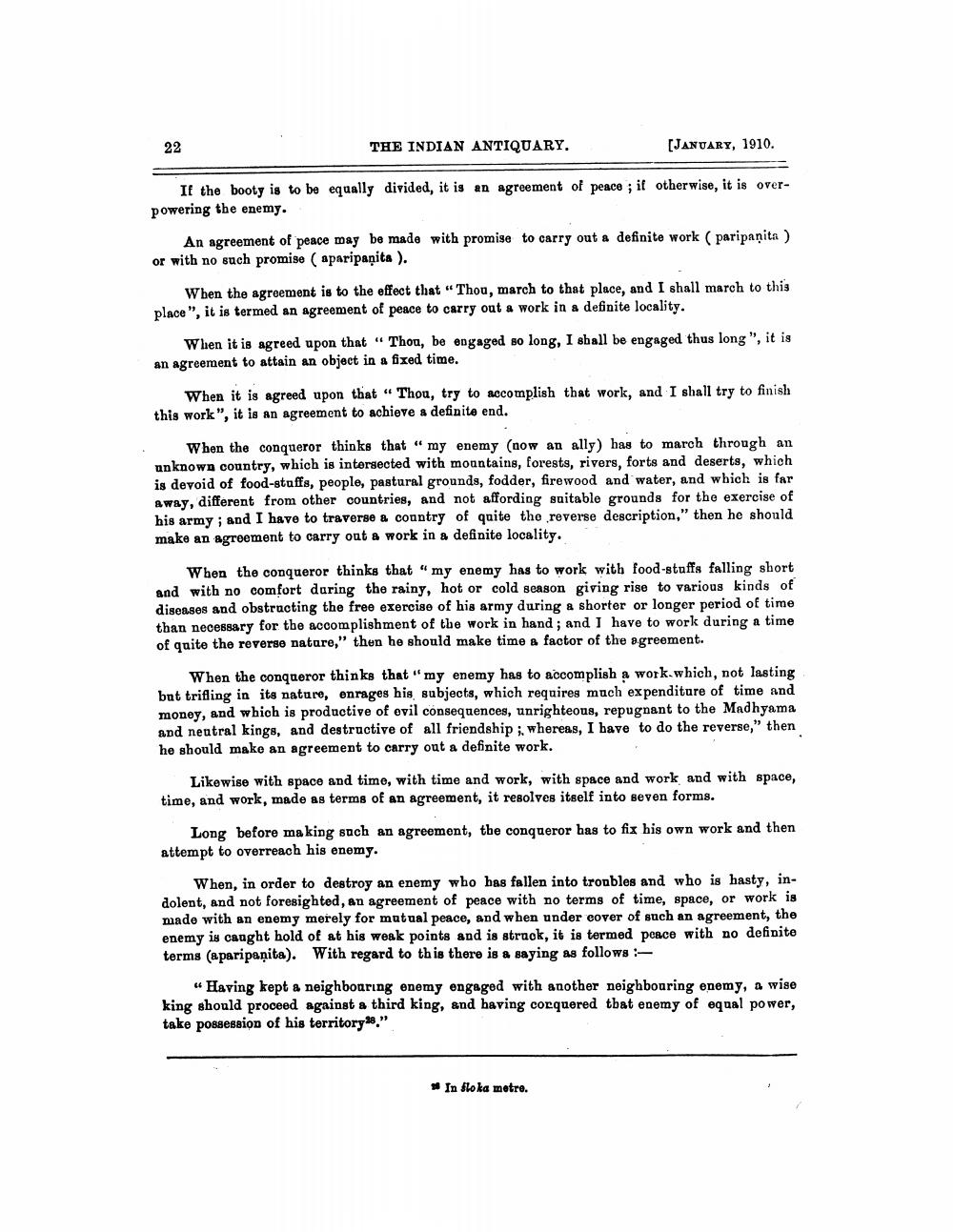________________
22
THE INDIAN ANTIQUARY.
(JANUARY, 1910.
If the booty is to be equally divided, it is an agreement of peace , il otherwise, it is overpowering the enemy.
An agreement of peace may be made with promise to carry out a definite work (paripaņita ) or with no such promise ( aparipaņita ).
When the agreement is to the effect that “Thou, march to that place, and I shall march to this place", it is termed an agreement of peace to carry out a work in a definite locality.
When it is agreed upon that “Thoa, be engaged so long, I shall be engaged thus long", it is an agreement to attain an object in a fixed time.
When it is agreed upon that “Thou, try to accomplish that work, and I shall try to finish this work", it is an agreement to achieve a definite end.
When the conqueror thinks that “my enemy (now an ally) has to march through an unknown country, which is intersected with mountains, forests, rivers, forts and deserts, which is devoid of food-stuffs, people, pastural grounds, fodder, firewood and water, and which is far away, different from other countries, and not affording suitable grounds for the exercise of his army; and I have to traverse & country of quite the reverse description," then he should make an agreement to carry out a work in a definite locality.
When the conqueror thinks that "my enemy has to work with food-stuffs falling short and with no comfort during the rainy, hot or cold season giving rise to various kinds of diseases and obstructing the free exercise of his army during a shorter or longer period of time than necessary for the accomplishment of the work in hand, and I have to work during a time of quite the reverse nature," then he should make time a factor of the agreement.
When the conqueror thinks that "my enemy has to accomplish a work which, not lasting but trifling in its nature, enrages his subjects, which requires much expenditure of time and money, and which is productive of evil consequences, unrighteous, repugnant to the Madhyama and neutral kings, and destructive of all friendship ;, whereas, I have to do the reverse," then he should make an agreement to carry out a definite work.
Likewise with space and time, with time and work, with space and work and with space, time, and work, made as terms of an agreement, it resolves itself into seven forms.
Long before making such an agreement, the conqueror has to fix his own work and then attempt to overreach his enemy.
When, in order to destroy an enemy who has fallen into troubles and who is hasty, indolent, and not foresighted, an agreement of peace with no terms of time, space, or work is made with an enemy merely for mutual peace, and when under cover of such an agreement, the enemy is caught hold of at his weak points and is struck, it is termed peace with no definite terms (a paripaņita). With regard to this there is a saying as follows:
“Having kept a neighbouring enemy engaged with another neighbouring enemy, a wise king should proceed against a third king, and having corquered that enemy of equal power, take possession of his territory."
# In Slo ka metro.




